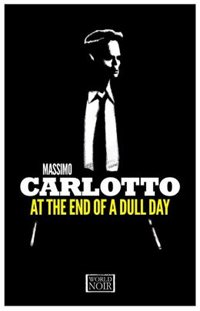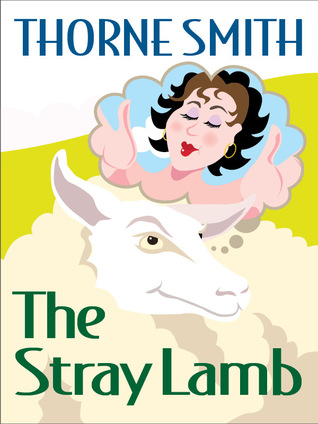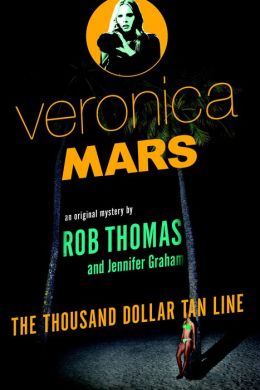
I can't resist making some predictions for the Edgar Awards, presented each spring by the Mystery Writers of America, even though my forecasting abilities are nil. I've been wrong in my Super Bowl betting for years and that's when I've had a 50-50 shot at picking right. D'oh! For the Edgars, I might as
well roll the dice or pick a name out of a hat. In fact, I'll do that too.
I invite you to make predictions any way you choose and to share them with us in the comments section beneath this post. As we all know, opinions about books and ranking them are subjective
enterprises and the Edgars judging panels are as human as we are. (As far as I can tell, Edgar-nominee Matt Haig has planted no extraterrestrials on the Edgar panel.) We'll find out how well we agreed with the judges this Thursday, May 1, when the winners are announced at the MWA banquet.
Without further ado, I'll show you the nominees for Best Novel and tell you what they're about:
Sandrine's Case by Thomas H. Cook (Grove Atlantic/Mysterious Press)
The Humans by Matt Haig (Simon & Schuster)
Ordinary Grace by William Kent Krueger (Simon & Schuster/Atria Books)
How the Light Gets In by Louise Penny (Minotaur Books)
Standing in Another Man's Grave by Ian Rankin (Hachette/Reagan Arthur Books)
Until She Comes Home by Lori Roy (Penguin Group (USA)/Dutton Books)

When
Sandrine's Case opens, Sam Madison, an unlikable Coburn College professor, is on trial for murdering his enigmatic wife, Sandrine. Between chapters of trial proceedings, Sam, who narrates, mulls over their relationship.
 The Humans
The Humans, by Matt Haig, details a visit to Earth by an
extraterrestrial from Vonnadoria after Cambridge mathematician Andrew
Martin scared that planet's extra-intelligent inhabitants by solving
the Riemann hypothesis. The Vonnadorian's undercover mission is to take
Martin's place and get rid of any evidence the hypothesis was solved.

In Kent Krueger's standalone,
Ordinary Grace, its middle-aged narrator, Frank Drum, looks back at 1961 in New Bremen, Minnesota, when he was the 13-year-old son of a Methodist minister. That summer, a series of deaths rocked the community and his family and ushered Frank into the world of adults.
 How the Light Gets In
How the Light Gets In, featuring Armand Gamache, Chief Inspector of the Sûreté du Québec, is the ninth in Louise Penny's popular series. It finds Gamache investigating a Three Pines disappearance against the backdrop of Sûreté infighting and corruption. Sister Mary Murderous reviewed it
here.

Retired Edinburgh cop John Rebus is working as a civilian in the Serious Crime Review Unit of the Lothian and Borders Police in Ian Rankin's
Standing in Another Man's Grave. After he fields a call from a mother convinced that her missing teenage daughter is one of a series of disappearances, Rebus dusts himself off and muscles his way into an active Edinburgh CID investigation. (See my review
here.)

It's 1958 in Lori Roy's gothic-tinged suspense
Until She Comes Home and Alder Avenue, a working-class Detroit neighborhood, is undergoing steady decline. Residents are frightened when a black prostitute is murdered near the local factory but the police ignore the death. It's the later disappearance of Elizabeth, a mentally disabled white girl, that galvanizes Alder Avenue.
Prediction:
I'll try to give you my thinking without divulging book spoilers.
 |
| Matt Haig |
There were moments in reading Haig's
The Humans when I laughed aloud at the Vonnadorian's confusion over customs we take for granted. At other times, my heart swelled with his joyful discoveries. Despite the book's lapse near the end into something akin to Hallmark card philosophizing I enjoyed its amusing and sentimental look at what makes us human. I think the Edgars are much like the Oscars, though. It's rare for a humorous nominee to win the big enchilada and I don't see an exception for
The Humans looming on the horizon.
 |
| Ian Rankin |
When Rankin retired Rebus in 2007's
Exit Music, I was afraid we'd lost him forever. I read
Standing in Another Man's Grave with a sense of relief and excitement. Rankin puts ol' Rebus under the searchlight here and we see anew how this man is a poor fit for the modern metropolitan police force. The force has changed since his retirement, but Rebus hasn't. He can't stick to assigned duties or stop smoking and drinking and he has no interest in learning how to use high tech investigation tools. He'll always have the fattest file in the Complaints department. Thank God. I don't think I could take a reformed Rebus. Rankin's plotting purred along as usual without any signs of rust. This is a good book and deserves its nomination. Because it's not Rankin's best, I don't pick it for the Edgar.
 |
| Lori Roy |
Lori Roy is interested in the pain that accompanies social change. I liked her
Bent Road, which won the 2012 Best First Novel by an American, and I liked
Until She Comes Home, too. Roy does a great job of capturing 1950s Detroit, the lives of housewives and their working husbands, the shuttering factories, open and hidden racism and fear of what the future will bring. She looks at what motivates a person to commit a crime and how that crime drops like a rock into a neighborhood pond, sending mud and trash to the surface and creating ever-growing ripples of irrevocable change. Her writing is lyrical and she made me think. Yet, I don't think this is her year.
 |
| Thomas H. Cook |
Thomas H. Cook dazzled me with
Sandrine's Case. It's an intricate and unpredictable courtroom thriller with Sam facing the death penalty and I
found myself going back and forth about whether he actually murdered
Sandrine. His arrogant self-centeredness made me recall that awful Teddy
Bickleigh from Francis Iles's
Malice Aforethought, and we know how guilty he was. In addition to the legal jousting,
Sandrine's Case is a gripping examination of a marriage, à la A.S.A. Harrison's
The Silent Wife. I didn't care whether this exact marriage exists in the real world. What Cook captures very well is the growing awareness and animosity between a long-married couple when they can't figure each other out, they can't get through to each other and they no longer remember what motivated them to marry in the first place. During the trial, Sam slowly strips off his skin for us and we can see his heart and brain. He begins to understand his much more talented and attractive wife, Sandrine. It's amazing how a dead woman comes to vivid life. We ultimately cotton on to each of them, their marriage and Sandrine's death.
 |
| Louise Penny |
I won't start a Louise Penny book unless I'm in a comfy chair with some milk and cookies handy because it's all part of the guaranteed-to-be-good Three Pines experience. There's such a sense of coming home while reading this series, with each book building seamlessly from the last, with a continuing cast of characters and themes of corruption and threats of reorganization interweaving with threads of the current investigation.
How the Light Gets In is one of Sister Mary's favorites in the Three Pines series and it's one of mine too, a joy to read.
 |
| William Kent Krueger |
William Kent Krueger is best known for his excellent Cork O'Connor series and he stretched for the powerful look at faith and redemption in
Ordinary Grace, a nonseries book. It's obvious he knows the '60s, his Minnesota setting and the sort of people who lived there very well. His plot is deliberately paced and straightforward, even though it rolls out through the memories of a man looking back at his youth; interesting in this Edgars competition because another nominee, Thomas H. Cook, has used this device to good effect in some of his books, such as
The Chatham School Affair and
Breakheart Hill. Krueger's plot didn't surprise me but there are paragraphs of such strength and beauty that I had to stop so I could read them again.
I won't be surprised by the Edgar going to Cook for his clever and surprising courtroom drama, although if I were an Edgar judge I'd vote for Penny. She has written one excellent book after another leading to the fix her protagonist finds himself in in
How the Light Gets In, but I think it will go to Krueger.
Ordinary Grace seems like a Best Novel Edgar winner, the literary equivalent of Oscar-winning movies such as
Ordinary People and
Chariots of Fire.
Title drawn out of a hat: Lori Roy's
Until She Comes Home. I'll laugh if this title wins the Edgar because I'll be able to claim I picked it to win.
I'll be back later this week to pick the Edgar winner for Best First Novel by an American.
Note: The nominees for Edgar Awards were all published in 2013. Other categories for the 2014 Awards are Best Paperback Original; Mary Higgins Clark Award, for the book most closely written in the Mary Higgins Clark Tradition according to guidelines set forth by Mary Higgins Clark; Best Fact Crime; Best Critical/Biographical; Best Short Story; Best Juvenile; Best Young Adult; and Best TV Episode. Special Edgars this year include the Robert L. Fish Memorial Award
, for the best first mystery or suspense short story; the Grand Master Award; and the Raven, for non-writers who contribute to the mystery genre. For a complete list of 2014 nominees and the data base of previous years' nominees and winners, see the Edgars website
here.
 When Sandrine's Case opens, Sam Madison, an unlikable Coburn College professor, is on trial for murdering his enigmatic wife, Sandrine. Between chapters of trial proceedings, Sam, who narrates, mulls over their relationship.
When Sandrine's Case opens, Sam Madison, an unlikable Coburn College professor, is on trial for murdering his enigmatic wife, Sandrine. Between chapters of trial proceedings, Sam, who narrates, mulls over their relationship. The Humans, by Matt Haig, details a visit to Earth by an
extraterrestrial from Vonnadoria after Cambridge mathematician Andrew
Martin scared that planet's extra-intelligent inhabitants by solving
the Riemann hypothesis. The Vonnadorian's undercover mission is to take
Martin's place and get rid of any evidence the hypothesis was solved.
The Humans, by Matt Haig, details a visit to Earth by an
extraterrestrial from Vonnadoria after Cambridge mathematician Andrew
Martin scared that planet's extra-intelligent inhabitants by solving
the Riemann hypothesis. The Vonnadorian's undercover mission is to take
Martin's place and get rid of any evidence the hypothesis was solved.  In Kent Krueger's standalone,
Ordinary Grace, its middle-aged narrator, Frank Drum, looks back at 1961 in New Bremen, Minnesota, when he was the 13-year-old son of a Methodist minister. That summer, a series of deaths rocked the community and his family and ushered Frank into the world of adults.
In Kent Krueger's standalone,
Ordinary Grace, its middle-aged narrator, Frank Drum, looks back at 1961 in New Bremen, Minnesota, when he was the 13-year-old son of a Methodist minister. That summer, a series of deaths rocked the community and his family and ushered Frank into the world of adults. How the Light Gets In, featuring Armand Gamache, Chief Inspector of the Sûreté du Québec, is the ninth in Louise Penny's popular series. It finds Gamache investigating a Three Pines disappearance against the backdrop of Sûreté infighting and corruption. Sister Mary Murderous reviewed it here.
How the Light Gets In, featuring Armand Gamache, Chief Inspector of the Sûreté du Québec, is the ninth in Louise Penny's popular series. It finds Gamache investigating a Three Pines disappearance against the backdrop of Sûreté infighting and corruption. Sister Mary Murderous reviewed it here.  Retired Edinburgh cop John Rebus is working as a civilian in the Serious Crime Review Unit of the Lothian and Borders Police in Ian Rankin's Standing in Another Man's Grave. After he fields a call from a mother convinced that her missing teenage daughter is one of a series of disappearances, Rebus dusts himself off and muscles his way into an active Edinburgh CID investigation. (See my review here.)
Retired Edinburgh cop John Rebus is working as a civilian in the Serious Crime Review Unit of the Lothian and Borders Police in Ian Rankin's Standing in Another Man's Grave. After he fields a call from a mother convinced that her missing teenage daughter is one of a series of disappearances, Rebus dusts himself off and muscles his way into an active Edinburgh CID investigation. (See my review here.) It's 1958 in Lori Roy's gothic-tinged suspense Until She Comes Home and Alder Avenue, a working-class Detroit neighborhood, is undergoing steady decline. Residents are frightened when a black prostitute is murdered near the local factory but the police ignore the death. It's the later disappearance of Elizabeth, a mentally disabled white girl, that galvanizes Alder Avenue.
It's 1958 in Lori Roy's gothic-tinged suspense Until She Comes Home and Alder Avenue, a working-class Detroit neighborhood, is undergoing steady decline. Residents are frightened when a black prostitute is murdered near the local factory but the police ignore the death. It's the later disappearance of Elizabeth, a mentally disabled white girl, that galvanizes Alder Avenue. 


































-210.jpg)







